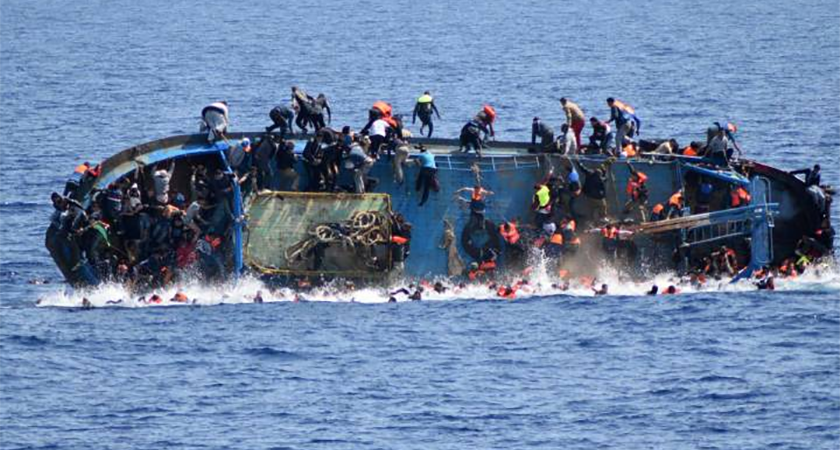Despite the extreme dangers involved in the quest to reach Europe by crossing the Mediterranean Sea, hundreds of African migrants continue to die in their frantic attempts to leave Africa behind.
According to the International Organization for Migration, deaths of African migrants in the Mediterranean Sea are on a steady rise, bringing to the fore the need for related governments to find a lasting solution to the perennial disaster.
“With over 3,770 estimated deaths, 2015 has been the deadliest year on record for migrants and refugees crossing the Mediterranean, trying to reach Europe. In comparison, approximately 3,270 deaths were recorded in the Mediterranean in 2014,” the International Organization for Migration reported last year.
So far in 2016, over a thousand African migrants have died trying to cross the Mediterranean Sea. On 20 April, the Telegraph reported that a boat capsized in the middle of the Mediterranean, killing about 500 migrants and refugees.
Last week, another 700 migrants reportedly drowned in the Mediterranean during three separate incidents while 13,000 survivors were rescued by Italian coast guards.
On the other hand, it is estimated that at least 25,000 migrants and refugees have crossed over successfully to Italy from North Africa this year.
Main Reasons for Migration Disaster
One question that still remains a puzzle to most people is: Why should Africans continue to risk their lives attempting to illegally enter Europe in spite of perennial reports about African migrants drowning?
Poverty is often cited as one of the main reasons: migrants are willing to risk their lives with the hope of finding better opportunities in the West. Ironically, The Global and Mail reports that a majority of African migrants crossing the Mediterranean to Europe are university graduates desperate to find employment.
Civil war and military repression are also a major cause of illegal migration to Europe. These migrants come from more than 20 countries including Ethiopia, Eritrea, Somalia, Nigeria, as well as non-African nations like Syria, according to CNN.
A recent study done by the International Organization for Migration showed Eritreans as the most prominent among migrants crossing over to Europe through the Mediterranean Sea, perhaps to find freedom from an authoritarian government and poverty.
Torture, Rape and Abduction
Whatever their reasons may be, the Mediterranean migrants are putting themselves in the path of more harm than drowning. In a report published last year, Amnesty International documented horrific accounts by survivors of the dangerous journey.
According to the report, migrants and refugees face all kinds of abuses at every stage of the smuggling route. Many, especially unaccompanied women and children, recounted how they were raped, tortured and abused by their smugglers.
Some of the survivors interviewed by Amnesty International also said smugglers viewed them as slaves and treated them as animals.
Many have questioned Africa’s apparent laxity in the midst of the Mediterranean migration crisis, which appears to be getting worse by the day. It’s time African governments regarded this crisis as their own problem and set about working with the international community to find a lasting solution.










